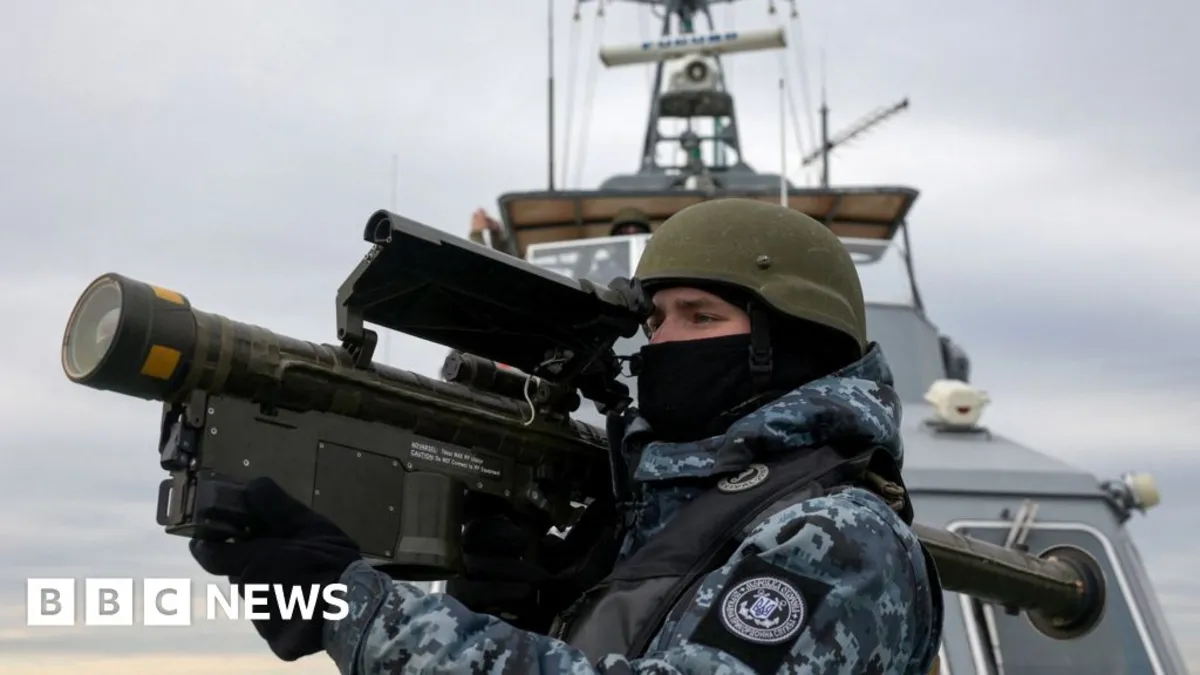
In a significant diplomatic breakthrough, Russia and Ukraine have agreed to a naval ceasefire in the Black Sea following two days of intense peace talks in Saudi Arabia. The agreements, facilitated by the United States, aim to reopen a vital trade route that has been heavily impacted by the ongoing conflict. The White House announced that all parties involved would continue to work towards establishing a sustainable and durable peace.
As part of the agreements, both Russia and Ukraine have expressed their commitment to developing measures that will enforce a previously established ban on attacking each other's energy infrastructure. This aspect of the deal is crucial for ensuring stability in the region and preventing further escalation of hostilities.
However, the situation remains complex. Russia has stated that the naval ceasefire will only take effect once a series of sanctions against its food and fertiliser trades are lifted. This includes demands for reconnection to the SwiftPay payment system for affected banks and the removal of restrictions on servicing ships under the Russian flag that are involved in food trade, as well as the supply of agricultural machinery essential for production.
US officials have been engaged in separate negotiations with representatives from both Moscow and Kyiv in Riyadh, with the objective of brokering a comprehensive truce. Notably, the Russian and Ukrainian delegations have not yet met directly. Ukrainian President Volodymyr Zelensky characterized the agreement to halt strikes in the Black Sea as a positive step, acknowledging that while it is premature to declare success, these discussions mark progress toward lasting peace.
In response to previous accusations from US President Donald Trump claiming that Zelensky was obstructing peace efforts, the Ukrainian leader emphasized that no one could accuse Ukraine of failing to strive for sustainable peace. Shortly after the announcement from Washington, the Kremlin reiterated that the ceasefire's implementation hinges on the removal of sanctions affecting its agricultural sector.
In a further development, Zelensky expressed concerns about the implications of the agreement, suggesting it could be viewed as a weakening of Ukraine's position. He warned that if Russia does not adhere to its commitments, Ukraine would seek to impose additional sanctions and demand increased military support from the US. In his nightly address to the nation, Zelensky accused the Kremlin of dishonesty regarding the conditions surrounding the ceasefire.
Ukraine's Defence Minister Rustem Umerov mentioned that third-party nations might oversee parts of the deal. However, he also issued a stern warning that any movement of Russian warships beyond the eastern section of the Black Sea would be interpreted as a violation of the ceasefire agreement and a direct threat to Ukraine's national security. Umerov affirmed that Ukraine reserves the right to defend itself in such scenarios.
The evolving situation in the Black Sea remains critical, with the potential for both diplomatic resolution and renewed conflict. As negotiations continue, the international community will be closely monitoring developments to support efforts toward a peaceful resolution.